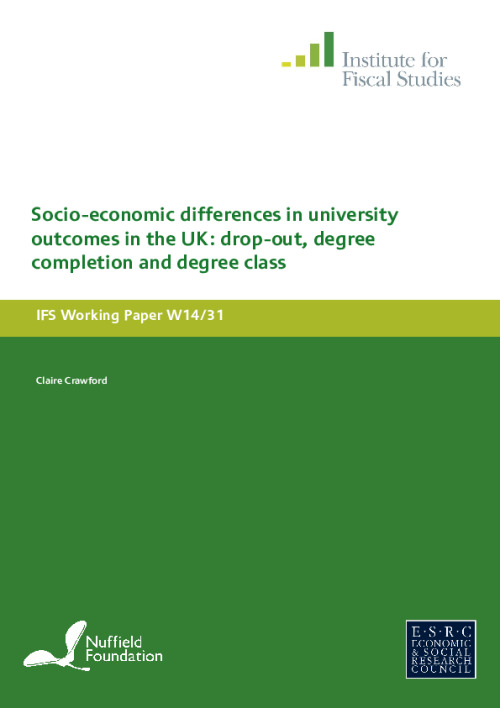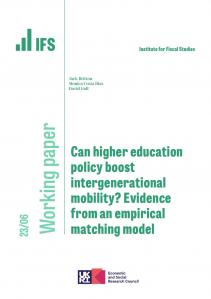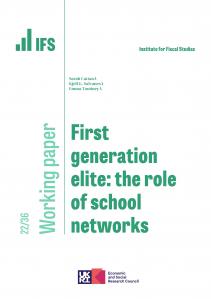There are large socio-economic gaps in higher education participation. But returns to education in the UK derive largely from the attainment of qualifications rather than years of study, and additionally vary by institution, subject and degree class for graduates. This paper provides new evidence on what happens to young people from different backgrounds once they arrive at university, exploring socio-economic differences in drop-out, degree completion and degree class. We find that the large raw differences in university outcomes between individuals from different socio-economic backgrounds can largely be explained by the fact that they arrive at university with very different levels of human capital. Comparing individuals on the same course makes relatively little difference to the remaining socio-economic gaps in university outcomes, with those from higher socio-economic backgrounds still 3.4 percentage points less likely to drop-out, 5.3 percentage points more likely to graduate and 3.7 percentage points more likely to graduate with a first or 2:1 than those from lower socio-economic backgrounds. These findings are in stark contrast to similar analysis by school characteristics (e.g. Crawford, 2014), which shows that, amongst students with the same grades on entry to university, those from worse-performing schools are less likely to drop-out, more likely to complete their degree and more likely to obtain a first or 2.1 than those from better-performing schools. This suggests that it is more challenging for universities interested in using contextual data to inform their admissions policies to predict those with high potential based on socio-economic background than based on school characteristics.










